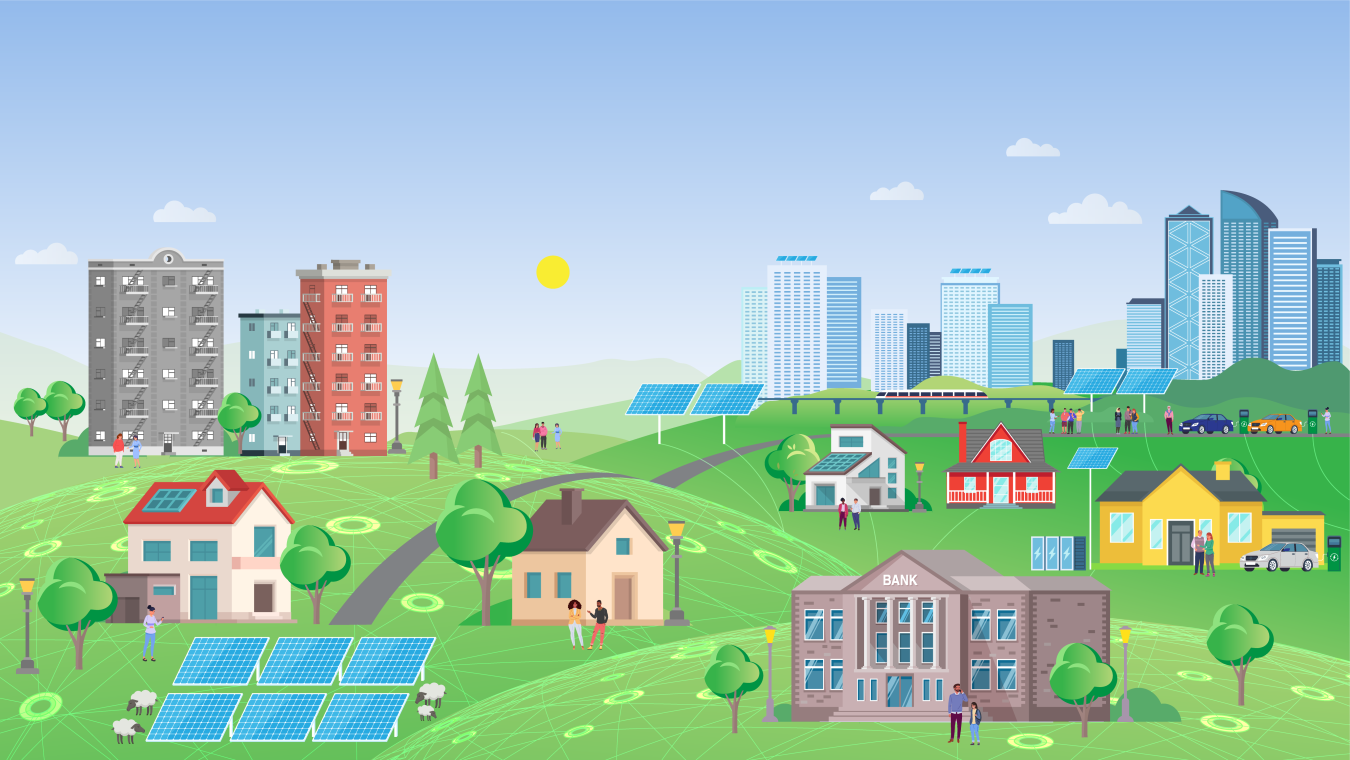
The U.S. Department of Energy National Community Solar Partnership (NCSP) recently launched a new community solar training program, as part of the Community Power Accelerator Prize competition. The lab, initially open to prize participants, is designed to provide solar developers with critical resources and know-how to help them launch new equity-focused community solar projects.
Community solar—a solar project or purchasing program in a certain geographic area with benefits that flow to multiple customers—is widely seen as a great way to make solar more accessible to households that may not be able to install solar on their own rooftops. Rather than footing the bill for installing solar on their own homes or buildings, community solar allows energy users to subscribe to a shared system of solar panels, often located within their community, and receive the benefits of solar power.
But how do community-based organizations and others who want these projects in their communities get started? To become a community solar developer, interested organizations need ways to get up to speed on local and state policies and regulations, proper community outreach, and access to predevelopment funds.
Community solar projects and programs can vary significantly in their structure, implementation, and benefits they provide. So, developers also need access to project predevelopment funds to design their program and prepare materials for funding applications, which the NCSP has recognized as one of the most persistent barriers to community solar development.
Enter the Community Power Accelerator Learning Lab, an online program that provides step-by-step training on community solar project development and business models for small and new developers, nonprofit organizations, cooperatives, and intermediary organizations, participating in the Community Power Accelerator Prize competition. The Learning Lab is run by the Center for Impact Finance at the University of New Hampshire’s Carsey School of Public Policy in partnership with the NCSP and is available at no cost to participants.
Interested developers have a choice of two courses:
Introduction to Community Solar
A self-paced, single-module course for organizations that wish to understand community solar or to partner with community solar developers for a limited number of projects. The purpose is to teach the basics of community solar and evaluate participants strengths and weaknesses and a solar developer. This includes:
- Describing how solar can be accessible to everyone, including people with limited resources and people of color, and how solar can benefit these communities
- Identifying the specific value-creation opportunities in the solar development process/value-added roles in the solar development industry
- Championing solar development within your organization as an opportunity to meet business and mission objectives
The Community Power Accelerator™ Learning Lab
- An intensive, instructor-led course featuring guest lecturers and expert speakers. This course delivers practical information to guide community-based, mission-driven, and low-income-focused organizations in how to develop community power projects that serve low-income communities and further environmental and social justice.
- The course consists of seven learning modules as well as weekly, instructor-led Zoom sessions. To participate, organizations must have completed the Introduction to Community Solar self-paced course, including the self-assessment exercise and written assignment at the end of the course, and be accepted into the course.
Through these courses, developers will gain the expertise they need to develop and fund a pipeline of community solar projects with a focus on equity and community benefits.
"Course participants will get the chance to gain the brass-tacks, practical skills that are needed to assemble a credit-worthy community solar project, while also earning a digital badge as a Community Solar Development Professional from the University of New Hampshire," says Eric Hangen, senior research fellow at the University of New Hampshire’s Carsey School of Public Policy.
Interested developers can apply for the $10 million Community Power Accelerator Prize, which awards cash prizes to enable mission-aligned developers to expand their staff and operations to design and deploy multiple community solar projects.
The Learning Lab and prize competition are part of the Community Power Accelerator™, an initiative that leverages working groups, technical assistance, training, and strategic partnerships to accelerate a pipeline of ready-to-deploy community solar projects and access to an online marketplace that connects owners, developers, lenders, and philanthropy to support more equitable deployment of community solar.
Since 2019, the DOE Solar Energy Technologies Office has been working to expand community solar through NCSP, a coalition of more than 1,300 stakeholders who are working to enable community solar systems to power the equivalent of 5 million households by 2025, creating $1 billion in energy bill savings. The partnership provides free resources, networking opportunities, and technical assistance so Americans can design and implement community solar projects.
Learn more and join the partnership here.